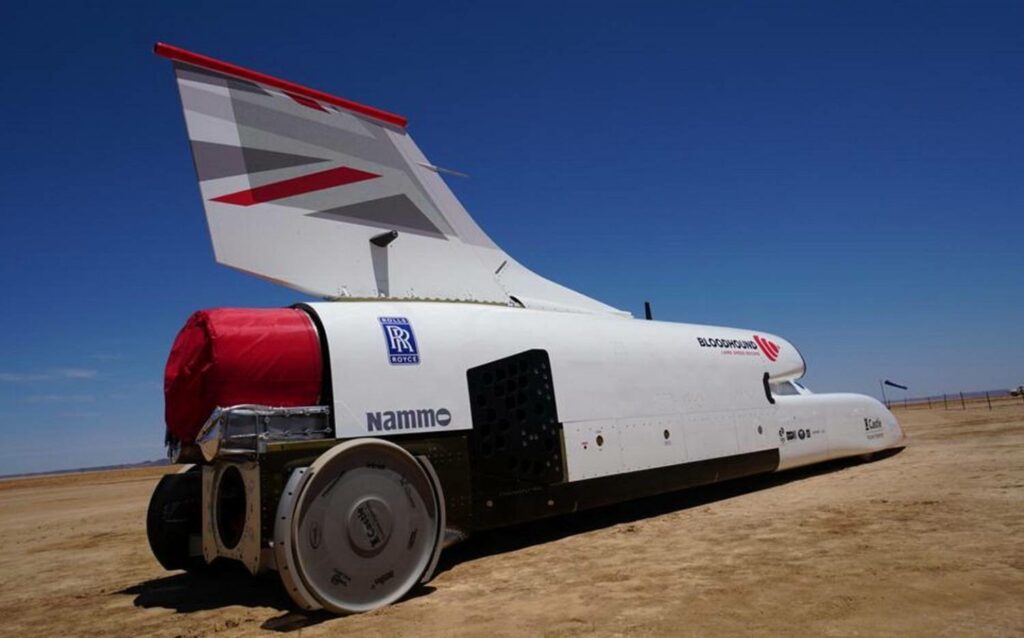Announced fifteen years ago, with the aim of establishing a new land speed record, the Bloodhound Land Speed Record (LSR) is looking for a pilot to take off. After several setbacks, which forced successive delays, the team responsible for the project is now offering the “opportunity of a lifetime” for “passionate and talented individuals willing to push the limits of speed and interested in making history by driving the fastest car on the planet.”
Detail: passion, courage, and piloting skills are not the only requirements. Candidates must possess another fundamental attribute: a check for the amount of 13.7 million euros: “Any potential pilots must be able to bring the necessary funding to allow the project to establish a new Land Speed Record… Therefore, we ask everyone who thinks they have the appropriate financial conditions, support, experience, and skills, to contact us through our website,” the statement reads.
After entering into administration in October 2018, due to lack of funds to continue with its plans to develop the fastest vehicle ever to run on land, the Bloodhound project went bankrupt. And it only returned to the road recently, with the arrival of a new investor, Ian Warhurst.
“As we enter a new chapter of the Bloodhound LSR project, I am excited about the opportunities and challenges that lie ahead, and confident that this will allow us to return to South Africa and establish a new record,” said CEO Stuart Edmondson.
For the last development tests, in 2019, in the Hakskeen Pan desert, in South Africa, the Bloodhound was equipped with the EJ200 jet engine, designed by Rolls-Royce for the Typhoon fighter-bomber, delivering something like 54,000 hp and 90,000 Nm!

However, the arrival of the new CEO, with a radical plan to operate the Eurofighter Typhoon engines with specially formulated synthetic fuel to ensure zero emissions, has transformed the relevance and appeal of the project. The former Royal Air Force pilot believes that Bloodhound can contribute invaluable data to the “rapidly accelerating and very exciting” development of aviation fuels of the future.
As for applications for the pilot position, all profiles will be examined by Andy Green, who was the first person to break the sound barrier on land, on his way to establishing the current record of 1,227 km/h in 1997 aboard the Thrust SSC.







